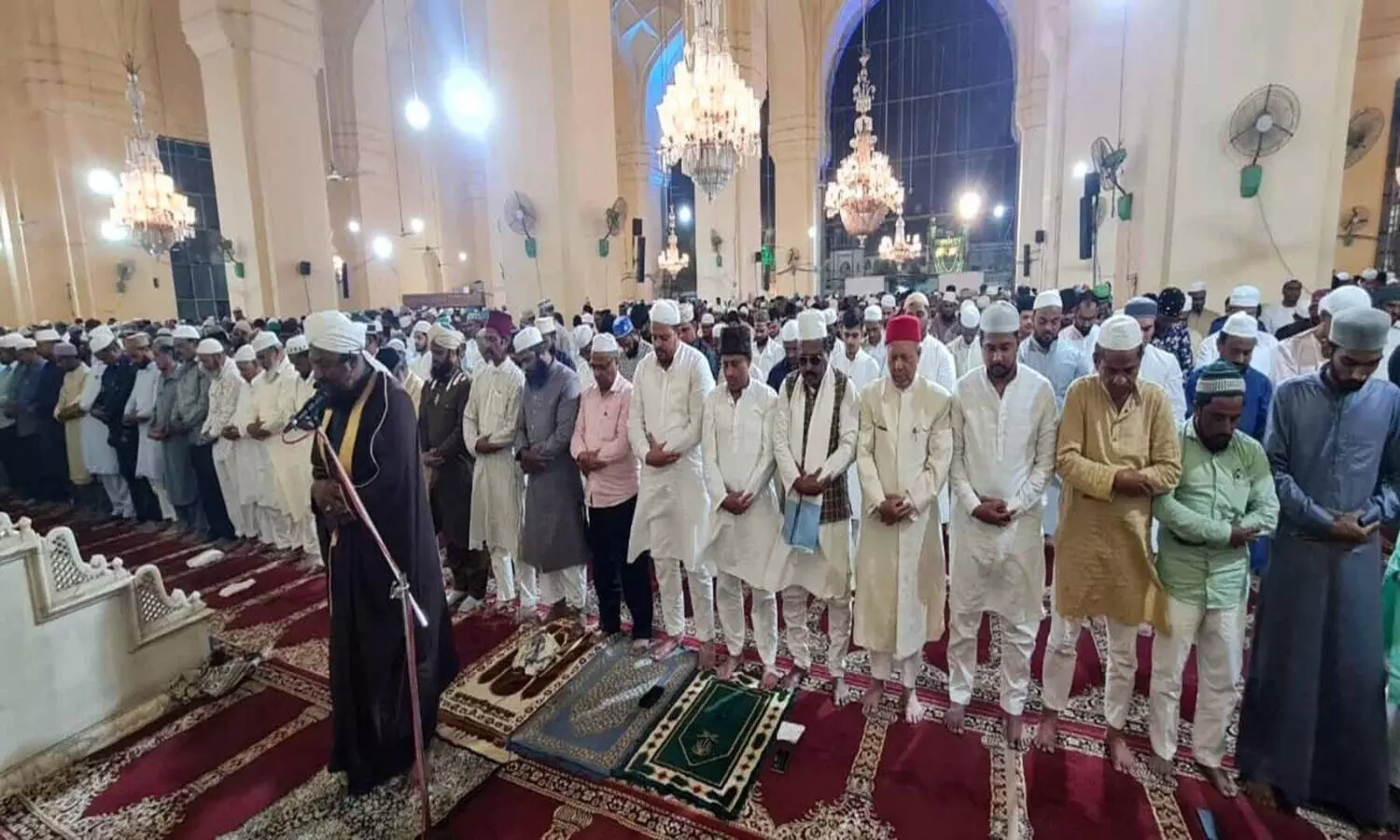Taraweeh Prayers: A significant aspect of Hyderabad's Ramadan observance
Ramadan starts in Hyderabad Monday night if the crescent is sighted. In the vibrant city of Hyderabad, the arrival of the holy month of Ramadan is marked by a unique blend of religious fervour and collective spirit

HYDERABAD: The holy month of Ramadan (Ramzan) began in the Kingdom of Saudi Arabia and other Middle Eastern countries on Sunday. People in these countries are also observing their first Roza (fast) on Monday.
With the onset of the holy month of Ramadan, the Taraweeh prayers have begun in all mosques, including the Masjid al-Haram, which surrounds the Holy Kaaba in Mecca.
In the vibrant city of Hyderabad, the arrival of the holy month of Ramadan is marked by a unique blend of religious fervour and collective spirit. The eagerly awaited crescent moon signals the beginning of a month-long period of spiritual reflection, self-discipline, and devotion.
Hyderabad's Ramadan observance centres around the tradition of Taraweeh prayers, an integral part of the holy month. These nightly prayers in mosques across the city create a distinctive atmosphere of unity and shared faith. The Mecca Masjid, an architectural marvel and historical landmark, is a testament to the city's rich religious heritage and a focal point for congregational prayers.
Also Read: 'No water-No vote' : Manikonda residents demand water guarantee from Telangana CM Revanth Reddy
Hyderabad witnesses one of the largest congregations for Taraweeh prayers in Asia and ranks among the top cities globally in terms of participation. What sets Hyderabad apart is the decentralised nature of Taraweeh prayers, extending beyond the mosque premises. In addition to congregational prayers in mosques, the Taraweeh prayers are organised in individual homes, apartments, and workplaces.
The Holy Quran is divided into 30 sections called "Juz" or "Para." Additionally, the Quran consists of 114 chapters, known as "Surahs." The total number of verses in the Quran is over 6,000. The division of the Quran into Juz and Hizb is not based on thematic content. Still, it is a convenient way to facilitate recitation and memorisation, particularly during Ramadan. Each Juz contains a roughly equal portion of the Quran, allowing Muslims to recite the entire Quran over the month.
The role of the Huffaz, individuals who have memorised the Holy Quran, becomes particularly crucial during Ramadan. Despite the significant number of youth passing out as Huffaz from the Madrasas, Hyderabad faces a shortage of Huffaz during this sacred month. As a solution, many Huffaz travel from regions like Bihar and Uttar Pradesh to lead the Taraweeh prayers.
Following the Isha Namaz, the Taraweeh prayers, comprising 20 Rakats (and 8 Rakats in some places), unfold as a gradual journey through the Holy Quran. Each night, Huffaz recite approximately one 'para' to ensure the completion of the entire Quran by Shab-e-Qadr on the 26th night of Ramadan. This night holds special significance, marked by felicitations and gifts for the Huffaz, acknowledging their dedication and service to the community.
Certain mosques adopt a more accelerated pace, with 3-6 paras recited each night. Notably, the historic Mecca Masjid follows the tradition of reciting three paras nightly, aiming to cover the Holy Quran thrice during Ramadan.
Hyderabad's Ramadan experience is unique and enriching, thanks to the combination of tradition and community devotion. As the crescent moon graces the Hyderabad skyline, Muslims in the city eagerly embrace this special time of year.



